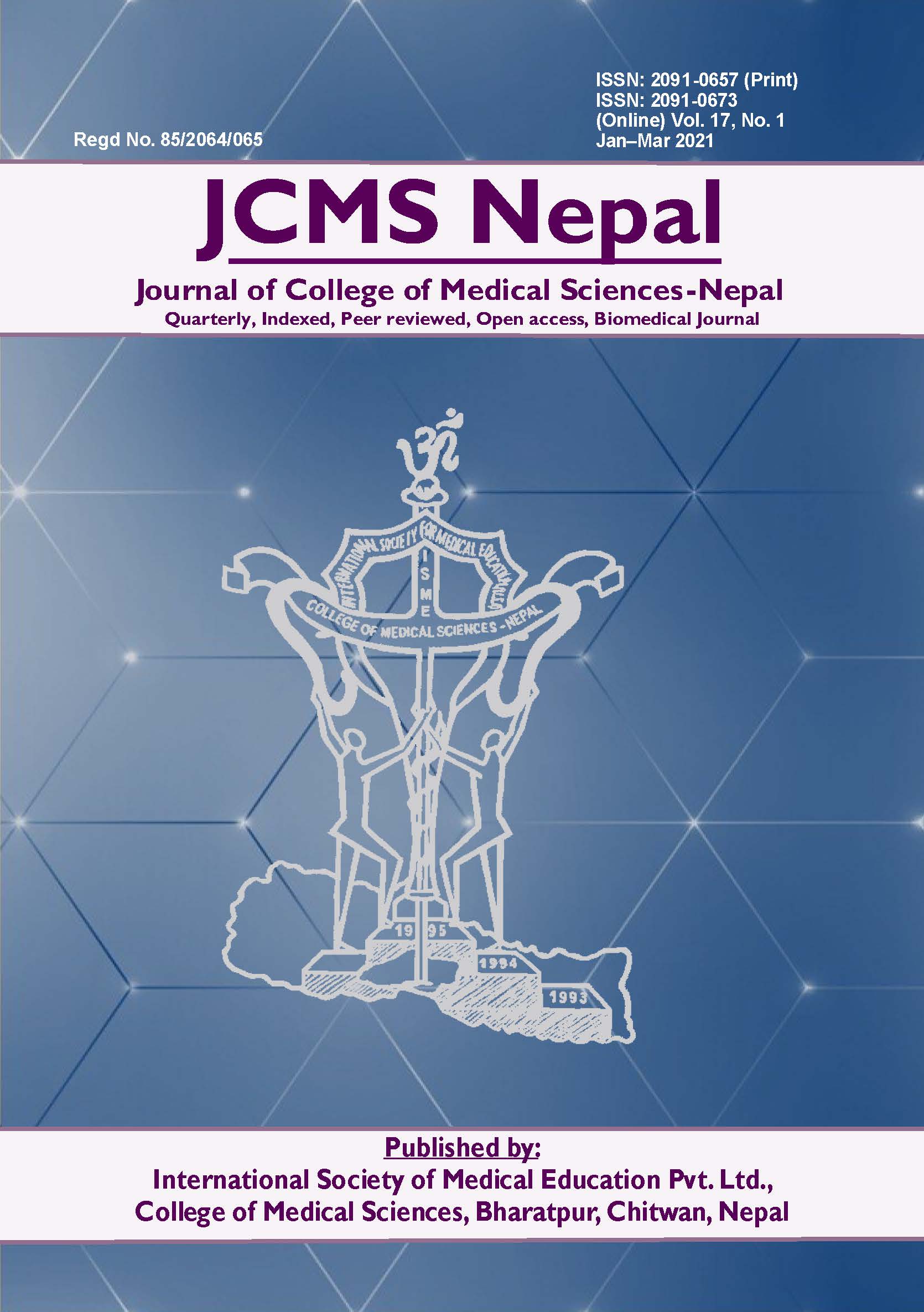Non-Menstrual Toxic Shock Syndrome Following Breast Abscess: A Rare Case Report From Nepal
DOI:
https://doi.org/10.3126/jcmsn.v17i1.29928Keywords:
Breast Abscess, staphylococcus aureus, toxic shock syndromeAbstract
Toxic Shock Syndrome is an acute illness caused by exotoxin producing Staphylococcus or Group A Streptococcus. TSS was traditionally associated with high absorbency tampon use in menstruating women until eventually, these were taken off the market. Since then, non-menstrual causes including wound infections, abscess, mastitis, burns, osteomyelitis, retained foreign bodies, etc are leading causes of TSS. TSS is characterized by fever, headache, myalgia, abdominal pain, hypotension, non-blanchable erythematous rash progressing to multi-organ damage. The mainstay of treatment includes removal of the source of infection, adequate volume resuscitation, vasopressors, and antibiotic coverage. Despite adequate treatment, the case fatality rate of Streptococcal TSS is 50% and Staphylococcal TSS is 3%. Here we present a unique case of 24-year-old women who presented with fever, headache, abdominal pain, and hypotension 6 days after self-drainage and self-medication of breast abscess. She was diagnosed with TSS secondary to breast abscess and admitted to the Intensive Care Unit (ICU), resuscitated and successfully treated with antibiotics.
Downloads
Downloads
Published
How to Cite
Issue
Section
License
This license enables reusers to copy and distribute the material in any medium or format in unadapted form only, for noncommercial purposes only, and only so long as attribution is given to the creator.




